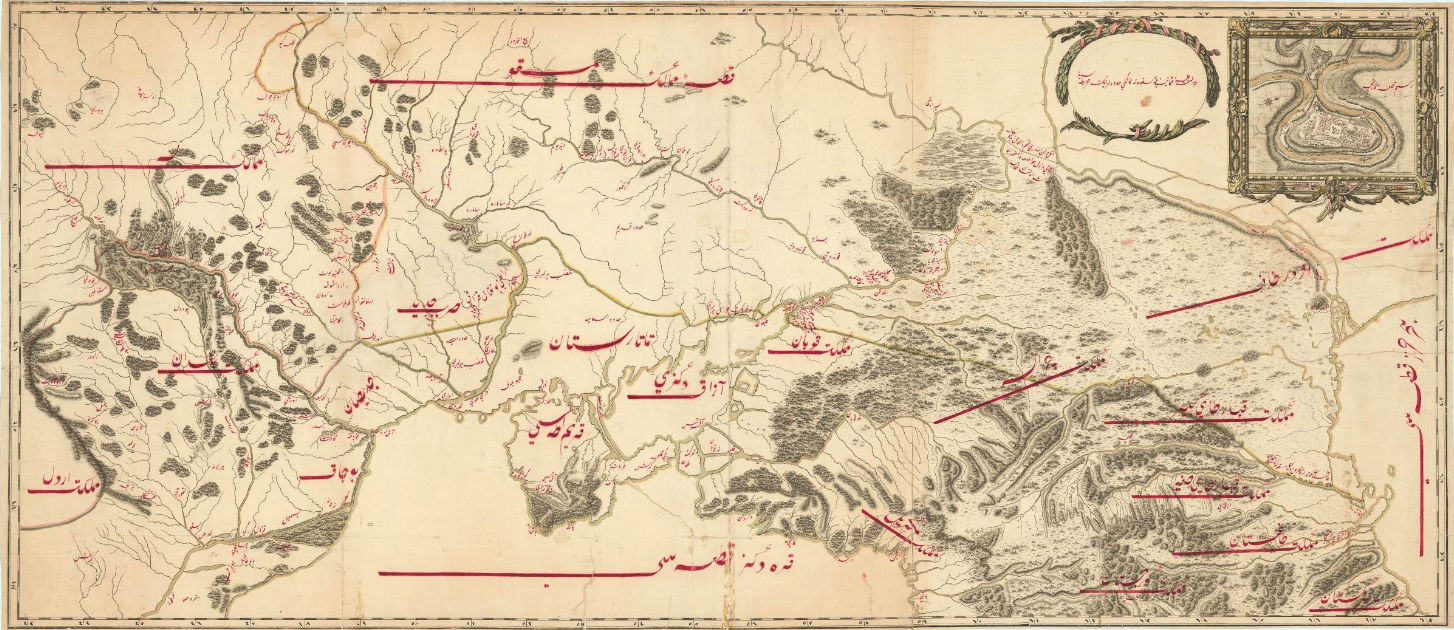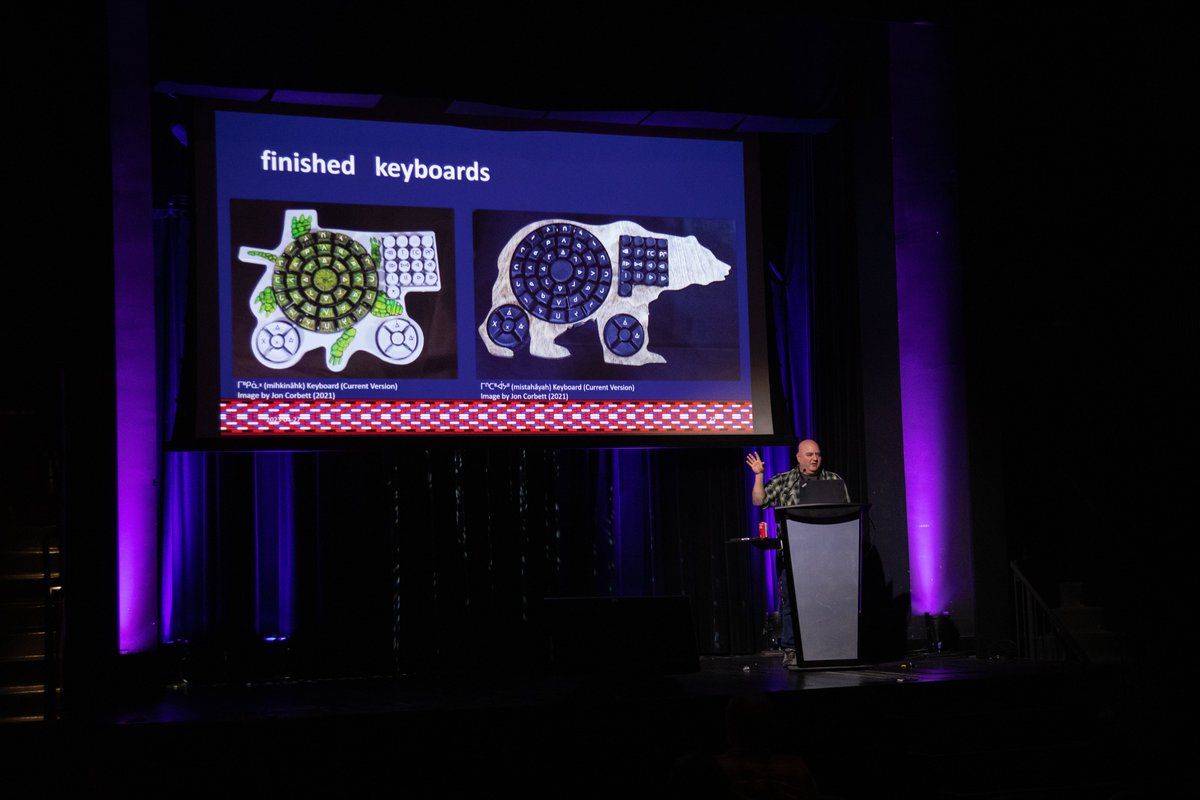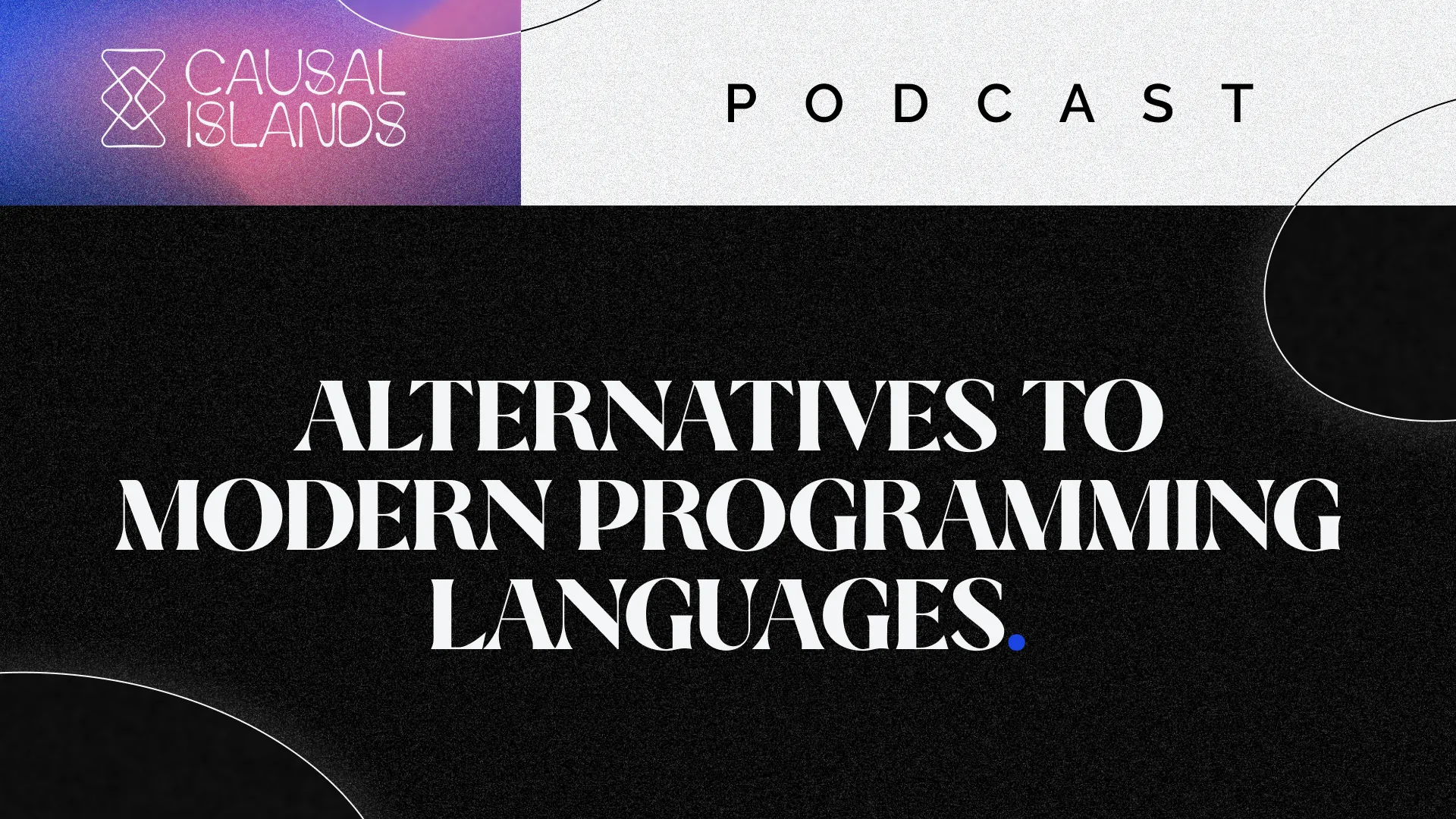This month, we are joined by special guests Ramsey Nasser and Jon Corbett to discuss their work creating Arabic and Cree programming languages, respectively.
Ramsey is a computer scientist, media artist, game designer, and educator. His work sits at the intersection of art and technology. قلب (Alb) explores the role of culture in coding and highlights the cultural biases and assumptions baked into the tools we use today.
Jon Corbett is a nehiyaw-Métis computational media artist, professional computer programmer, and professor. He is approaching the end of his Ph.D. dissertation, which focuses on building an Indigenous Computing Framework. Cree# is a graphical and generative programming language based on C# that uses nehiyawewin syllabics and Cree metaphors.
In this episode, you'll hear:
- How Ramsey and Jon each approached creating non-Latin alphabet-based programming languages
- The challenges they experienced in trying to find the right words to express their desired inputs and outputs when their respective languages didn't have words for those concepts
- The delightful surprises they encountered when putting their programming languages into practice

Here's a glance at the episode...
- [4:50] Ramsey Nasser studied computer science at the American University in Beirut and earned his MFA in Design & Technology at Parsons. His work sits at the intersection of art + tech.
- [6:50] Ramsey taught Processing at Parsons to non-programmers. Unity and Open Frameworks were also being taught, and these tools were touted as a way to democratize programming for everyone. However, Ramsey, whose native language is Arabic, realized that this couldn't be the case because these languages are all based on English, and most of the world doesn't speak English.
- [12:50] Ramsey shares how different Arab cultures have different words for the names of the months, so even beginning to standardize an Arabic programming language falls apart pretty quickly. This is different from many Western cultures.
- [15:05] Approaching Alb as an art practice widens the scope of exploration and questions that can be asked, whereas approaching it from an engineering perspective would involve building all the tools we use to program from the bottom up.
- [16:50] Culture cannot be separated from names. Therefore, we are forced into a linguistic collaboration with programmers who came before us. If you want to consume any software written in the last 50 years, you need to be able to engage with English language names.
- [20:20] Zeeshan asks Ramsey if there was a point in the history of computing that we could point to where, if we'd thought about language earlier, we could have changed our current predicament.
- [24:20] Jon Corbett joins us and talks about reclaiming his ancestral language, Cree. When he learned that there is no word for "computer" in Cree, it sent him down a challenging path where he had to find new ways of articulating computing experiences.
- [27:40] Jon explains how there aren't if...then statements in Cree, which made it difficult to work with conditional statements.
- [28:20] His breakthrough came when studying the work native Hawaiians are doing as they create a Hawaiian programming language.
- [32:00] Jon and Ramsey share their takeaways from working with their languages in programming.
- [37:20] Ramsey explains how Arabic is a cursive language, meaning you can stretch the words. Alb takes advantage of this.
- [40:20] Brooklyn points out that language changes how we think. She asks Ramsey and Jon if it has changed how they approach engineering problems.
- [44:20] Jon discusses incorporating "digital smudging" into his coding practice.
- [47:40] Ramsey and Jon explain the trouble they had translating "true" and "false."
- [55:20] An audience member asks about directionality and how Ramsey and Jon would approach Ancient Egyptian, which can be written left to right, right to left, and top to bottom.
- [1:08:20] An audience member asks Ramsey about the phrase "inshaAllah" and how that can be expressed in code.
- [1:13:40] Jon and Ramsey share what they are working on now.
Listen to the podcast embedded above, or head to our podcast landing page to subscribe to the podcast on your preferred platform.
Episode Links and Shoutouts:
Co-Host: Zeeshan Lakhani - Staff Research Engineer at Fission, Member of Causal Islands Programming Committee
Co-Host: Brooklyn Zelenka - CTO and Co-Founder of Fission, Member of Causal Islands Programming Committee
Causal Islands Theme Song by depatchedmode
Editor and Producer: Becky Vazquez
Guest: Ramsey Nasser is a game designer, media artist, computer scientist, and educator. He is one of the founding worker-owners of the EMMA Technology Cooperative where he builds everything from interactive experiences to Lisp compilers for clients all across the world. He lives in Brooklyn with his partner and their big goofy dog, and when he's not tinkering on some computer shenanigans you'll find him riding his motorcycle safely under the speed limit.
Guest: Jon Corbett is a nehiyaw-Métis computational media artist, professional computer programmer, and newly appointed Assistant Professor at Simon Fraser University’s School of Interactive Art & Technology. He holds a BFA from the University of Alberta in Art and Design, and an MFA and Ph.D. from the University of British Columbia in Interdisciplinary Studies. His doctoral research crosses the domains of Indigenous Studies and Digital Humanities and focuses on braiding Indigenous knowledge with western computing paradigms. His research products thus far include a nehiyaw-based programming language, physical hardware designs for the nehiyaw syllabic orthography, and software/application solutions that use Indigenous Storywork as design tools. In addition to being showcased in several books and articles, his artwork has been featured at the Smithsonian National Museum of the American Indian in New York City, NY, and at the Biennale d’art contemporain autochtone / Contemporary Native Art Biennial (BACA) in Montreal, QC.
- Processing programming language
- Ramsey's Alb exhibition for Eyebeam
- Eyebeam
- Ramsey's Deconstruct talk
- Article from Simon Fraser University on Cree Coding
- Jon's article for Pinnguaq on Cree Coding
- Jon's Causal Islands talk on Indigenous Computing Theory
- Esoteric Codes interview with Jon
- Orca programming language
Map of the Ottoman boundaries demonstrating how Arabic script can be elongated because the letters are joined. (Source)

"Bismillah, al-Rahman, al-Rahim." Translation, "In the name of God, the Most Compassionate, the Most Merciful." This Islamic phrase is so common it has been turned into one character!
﷽
Jon's Cree keyboards

